Brexit: Berlin business leaders unimpressed with UK's message
- Published
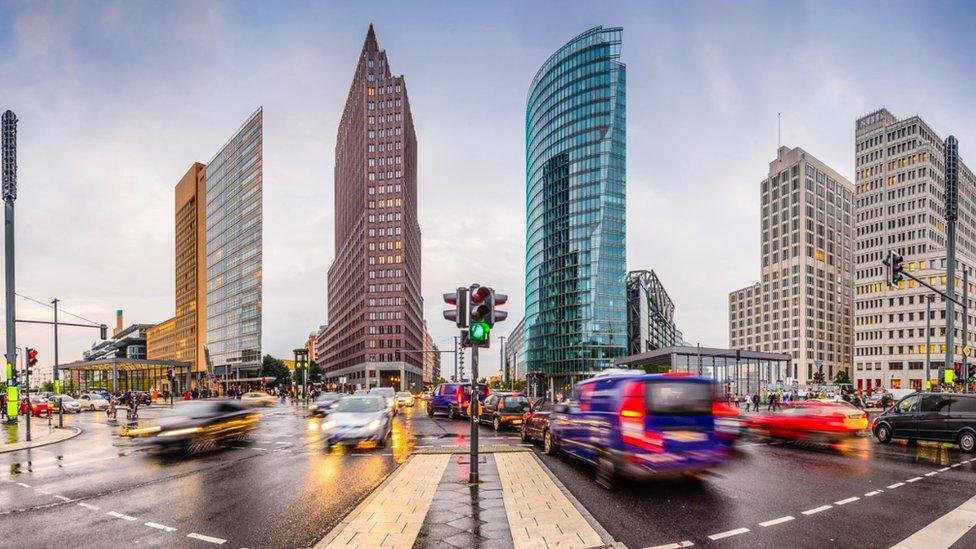
Two British officials failed to win favour from German business leaders in Berlin
The distinguished audience members were too polite to heckle. But the eye rolling, frowns and audible tutting made it quite clear how the Brexiteers' message was going down with German business leaders.
Owen Paterson, a former minister and Conservative MP, and John Longworth, co-chair of Leave Means Leave, came to Berlin on Saturday with a clear mission - to persuade German business leaders to lobby Chancellor Angela Merkel to give Britain a good trade deal.
They should have been on safe territory.
The two men are confident, witty speakers with impressive business and free-trade credentials.
Mr Longworth is a former head of the British Chamber of Commerce. Mr Paterson's years spent trading in Germany meant he could open his address with a few remarks in German - which drew an appreciative round of applause - and a well-judged joke about multilingual trade.
But it turned out they had entered the lion's den.
The laughter from the audience quickly turned to sniggers as they heard the UK described as "a beacon of open, free trade around the world".
Westminster's decision to leave the world's largest free trade area does not look like that to Germany.
When Europe was blamed for spending cuts and a lack of British health care provision, there were audible mutters of irritation from the audience.
The occasional light-hearted attempts at EU-bashing - usually guaranteed to get a cheap laugh with some British audiences - was met with stony silence.
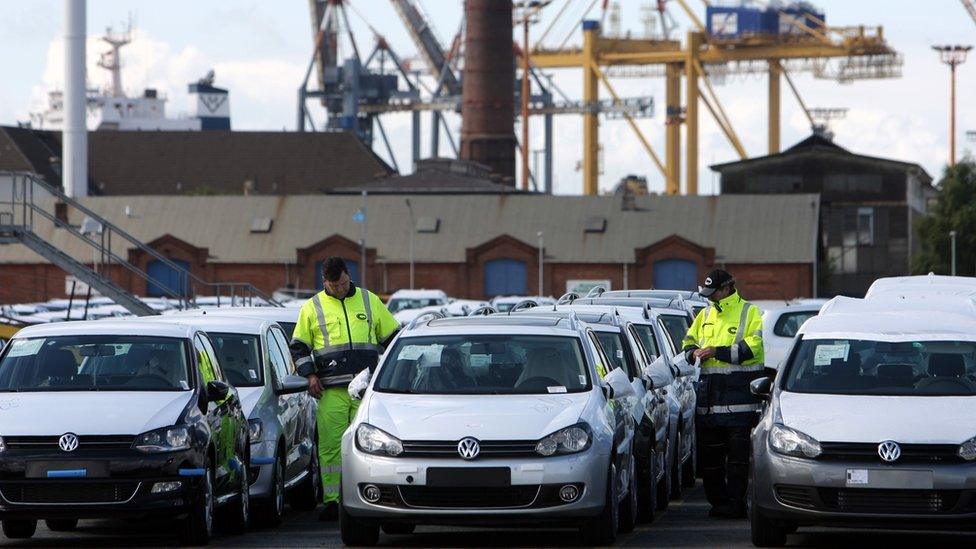
Brexiteers argue German manufacturers will want to still sell to UK customers
In another setting - at another time - this gathering of the elite of Germany's powerful business community would have lapped up the British wit.
Every ironic quip would ordinarily have had them rolling in the aisles. But British charm does not travel well these days.
Rattled by the economic havoc Brexit could unleash, Germans are not in the mood for gags.
Britain used to be seen by continentals as quirky and occasionally awkward - but reliably pragmatic on the economy.
However, since the Brexit vote, Europeans suspect endearing eccentricity has morphed into unpredictable irrationality. The UK has become the tipsy, tweedy uncle, who after too much Christmas sherry has tipped over into drunkenly abusive bore.
Remarkably united
When the audience was asked how many of them welcomed Brexit, only one hand went up - and it turned out that belonged to a businessman who wanted more EU reform and was fed up with Britain slowing things down.
Brexiteer rhetoric over the past year has often focused on the size of Britain's market and how keen German manufacturers are to sell to British customers.
Many leave campaigners remain convinced that German business leaders will force Mrs Merkel to grant the UK a special free trade deal in order not to lose British trade.
But that's not what's happening.
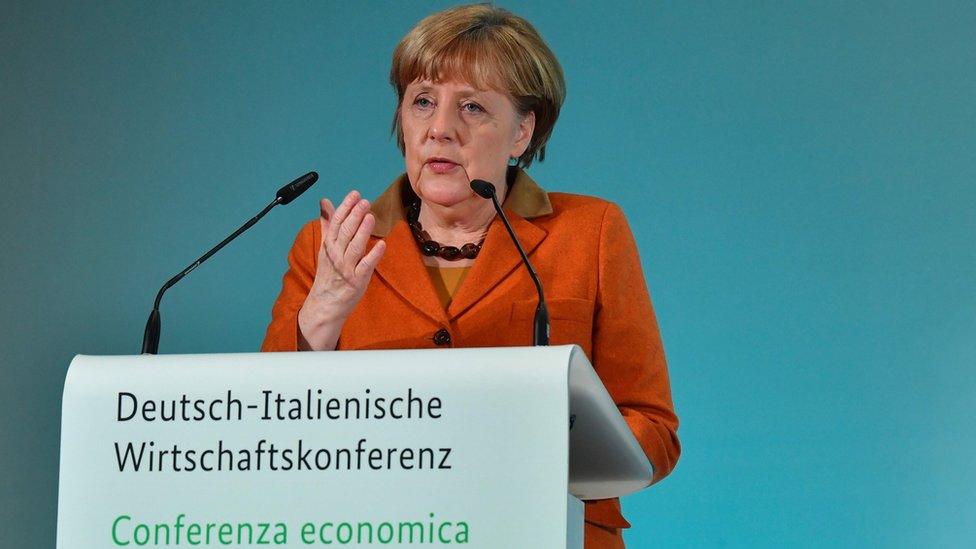
Angela Merkel has said Britain will not be able to cherry-pick the best bits of the single market
Instead German firms are remarkably united in their support of the chancellor in her rejection of British "cherry-picking" - even if it means losing business in the short-term.
When you talk to German bosses they say their top priority is in fact the integrity of the single market, rather than hanging on to British customers.
That's because their supply chains span across the EU.
A German car might be designed in Germany, manufactured in Britain, with components made in various parts of eastern Europe, to be sold in France. This only works if there are no cross-border tariffs, paperwork or red tape.
Support for Merkel
German companies - more often family-owned and with deeper connections to their regional heartlands - tend to look at the wider picture, sometimes thinking more long-term.
They supported Mrs Merkel on sanctions against Russia over Ukraine, even though that meant a blow to trade. The financial hit was deemed less bad for business than worsening unrest in nearby Ukraine.
The same calculations are being made over Brexit.
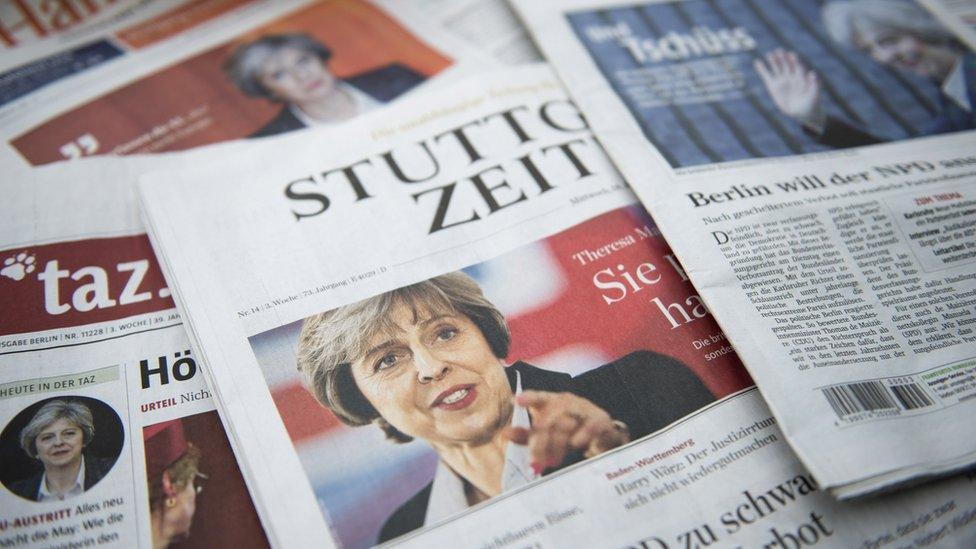
Theresa May's speech on Brexit last week made front page news in Germany
This doesn't mean German business is thinking politically, and not economically. But rather, it indicates a wider attitude towards how business can thrive long-term.
German business leaders tell you that the British market may be important. But it is only one market, compared to 27 markets in the rest of the EU.
Leave campaigners also still underestimate the political and historical significance of the EU for Germany, where it is seen as the guarantor of peace after centuries of warfare.
It is tempting to see the clashes between Westminster and the EU27 as one big decades-long misunderstanding of what the EU is.
An idealistic peace-project versus a pragmatic free-trade zone. This makes it even more ironic that London may reject the free-trade area it spent so much time creating.
Same old arguments
Germany was shocked and saddened by the UK's vote to leave the EU. But the decision was quickly accepted in Berlin.
"The Brits never really wanted to be members of the European Union anyway," is something you often hear these days.
Many Germans now want to just work out a solution that does the least amount of harm to the European economy. Hence the irritation in Germany when British politicians keep rehashing the pre-referendum debate.
"It was frustrating to hear the same old arguments from the referendum campaign," one business leader told me when I asked him what he had thought about Saturday's discussion.
Germany has moved on, he said. Maybe Britain should too.
The Brexiteers might not have persuaded their audience in Berlin. But if they return to London with a better idea of the mood in Germany's business community, then the trip may well have been worthwhile.
- Published19 January 2017
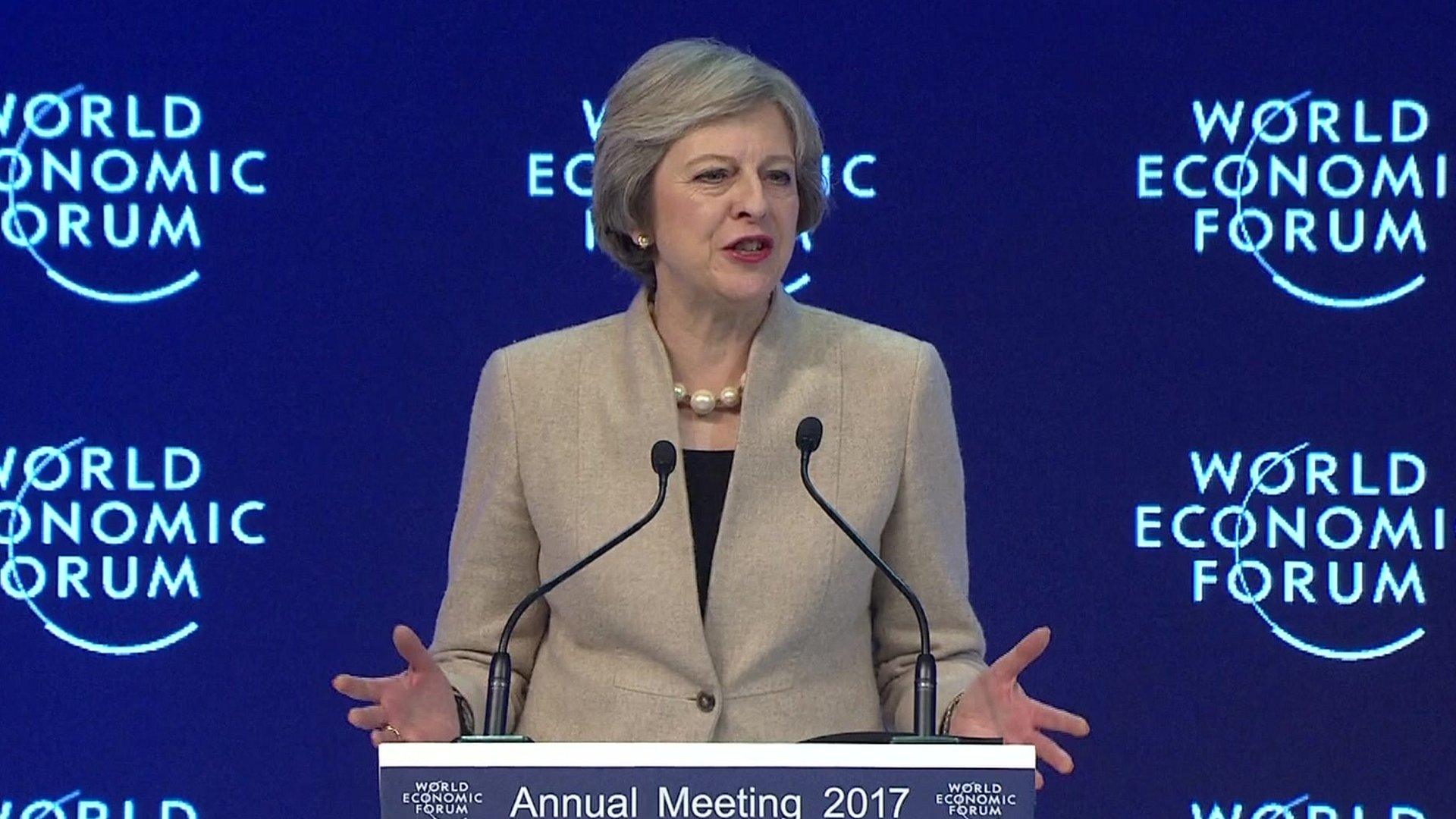
- Published18 January 2017
- Published30 October 2016
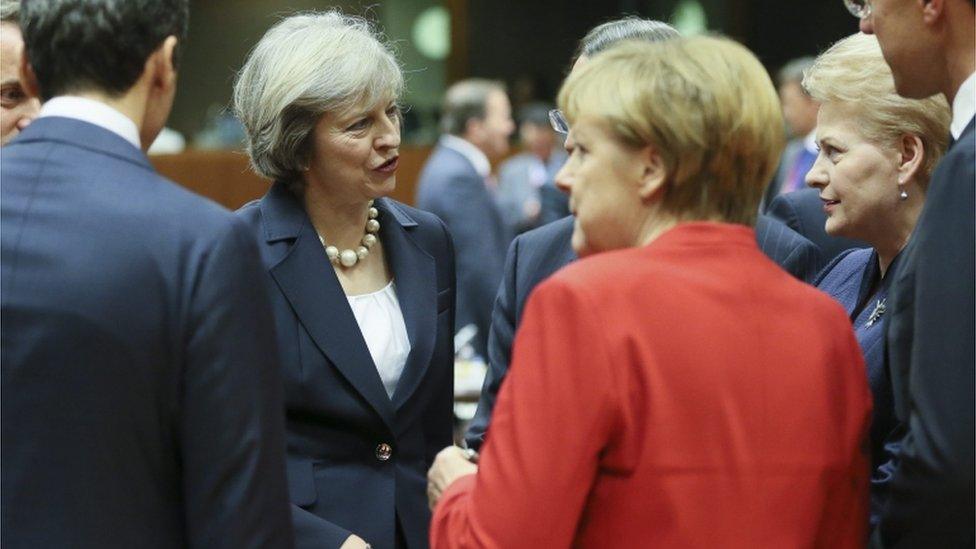
- Published7 October 2016